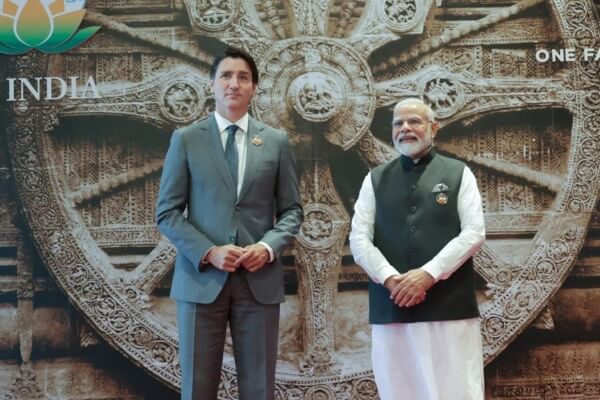Just two weeks ago, India was being courted by the 20 (well, 18) most powerful countries of the world. With the absence of China and Russia, the G20 summit became India’s time to shine on the international stage.
And shine it did, world leaders all harping on about India’s amazing growth story, quietly positioning India as a counterweight to China. India achieved a diplomatic coup with its communique at the conclusion, which, watered down though it was in condemning Russian aggression in Ukraine, was approved by the participants.
The only country and its leader not buying into the India hype was Canada and Prime Minister Justin Trudeau. Trudeau had a file he wanted to share with Indian PM Modi, which possibly held intelligence linking Indian government agents to the murder of a separatist Sikh leader in Canada, Hardeep Singh Nijjar.
Modi wasn’t having any of that, with Justin Trudeau one of the few Western leaders who didn’t get one-on-one time with him. Knowing they wouldn’t make many inroads with India on this issue, senior members of the Trudeau team found their way to Washington and London to share their findings with these powers whilst the G20 summit was on.
On Monday, Prime Minister Trudeau went public with his accusations. Knowing media were about to break this story, Trudeau told a press conference in Ottawa that Canada will be “actively pursuing credible allegations” Indian agents had been involved in the murder of Canadian citizen Hardeep Singh Nijjar in June. Being an active murder investigation, Trudeau has not disclosed any hard evidence. As expected, India has slammed these allegations as absurd. Tit-for-tat diplomatic expulsions have taken place, and a much-anticipated free trade agreement scheduled to be signed between the two countries is now off the table.
To date, world response to the India-Canada row has been muted, the Western powers working out their calibrated response to the situation. What happens if the accusations are proven to be true? While this won’t sit comfortably with any country, deep in their hearts they know this type of wolf politics does happen, and isn’t just practice for Russia, Iran and China but also Israel and the United States. (Remember, Osama Bin Laden was a covert US operation on foreign territory).
India will use its importance in the geopolitical chess board to position itself as a country of strength. As the fifth largest economy in the world, a populous country set to be the source of global human capital, and a young country which will benefit from its demographic dividend for the rest of this century, this country will be hard to call out on incidents such as this, however abhorrent they are.
Britain has refused to publicly criticise India and said bilateral trade talks will continue as planned. White House National Security Adviser John Kirby said the United States is “deeply concerned” and has encouraged Indian officials to cooperate with investigations. Australian Foreign Minister Penny Wong’s office said, “Australia is deeply concerned by these allegations and notes ongoing investigations into this matter. We are closely engaged with partners on developments. We have conveyed our concerns at senior levels to India.” India is a strategic partner in the Quad and Australia is well aware of India’s counterbalance to China in the Indo-Pacific.
Both Beijing and Moscow will look to exploit fissures in India’s relationship with the Five Eyes alliance nations United States, Britain, Australia, Canada and New Zealand.
Canada must produce irrefutable proof of India’s involvement in the assassination to make India accountable on the world stage.
Otherwise, if it is a choice between Canada and India, at this time, India will have the upper hand.
READ ALSO: India rubbishes Canada’s allegations




